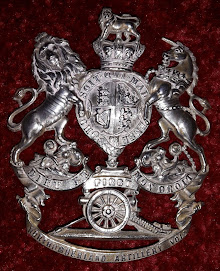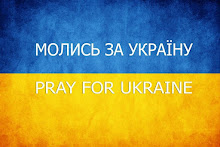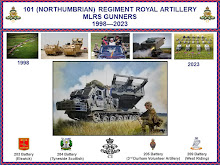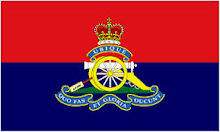 |
| Erquinghem Lys Churchyard Extension Cemetery |
 |
| Erquinghem Lys Church |
Erqunighem was briefly occupied by the Germans in October 1914 as the Allied and German Armies raced to the sea. It was taken by 1st Somerset Light Infantry on 16th October 1914.
The cemetery was used throughout the war by Field Ambulances.
 |
| Erquinghem Lys Field Ambulance |
 |
| Erquinghem Lys Field Ambulance |
 |
| Erquinghem Lys Field Ambulance |
 |
| Erquinghem Lys Field Ambulance |
In April 1918 the Germans launched the second of their spring offensives, Operation Georgette. The town was captured by the Germans on 10th April 1918 despite stubborn defence by 1/4 Duke of Wellingtons. The Germans utilised the existing cemetery to bury their casualties. There are 130 German Soldiers buried around the Cross of Sacrifice. They are mainly casualties from the German Spring Offensive.
Erquinghem would remain in German hands till September 1918.
 |
| Erquninghem Lys Churchyard Extension Cemetery Cross of Sacrifice |
 |
| Erquninghem Lys Churchyard Extension Cemetery British and German Graves |
There are 72 Australian and 3 New Zealand graves from April to August 1916 when I ANZAC Corps deployed on the Western Front for the first time.
 |
| Erquninghem Lys Churchyard Extension Cemetery Australian Graves |
In 1915, the French requested 300,000 men from Russia to support the French Army on the Western Front. The request was opposed by the Russian Army, however Tsar Nicholas II agreed to send a Brigade. The First Russian Special Brigade landed in Marseille in April 1916. The Brigade was disbanded following the Russian Revolution in 1917. Some Russian soldiers wished to continue the fight against the Germans. Some joined the French Foreign Legion, others were incorporated into the Légion d’Honneur Russe, Russian Legion of Honour. The Russian Legion was attached to the 1st Moroccan Division on December 13 1917. The unit was disbanded on the signing of the Armistice 11th November 1918. The cemetery contains the grave of an unidentified Russian Soldier of the Imperial Russian Army.
 |
| Erquninghem Lys Churchyard Extension Cemetery Unidentified Russian Soldier |
The cemetery contains the graves of 71 Gunners, 53 from the Royal Field Artillery17 from the Royal Garrison Artillery and one from the Royal Horse Artillery.
 |
| Captain CJH Clibborn RFA
KIA 14th December 1914
|
The first Gunner officer to be buried in the cemetery was Captain Cuthbert John Clibborn who was killed in action 14th December 1915 serving with D Battery Royal Horse Artillery. Cuthbert John Clibborn was born Born in Mussourie, Dehra Dun Dist, Uttar Pradesh, India on 13 Nov 1883 He was the Son of Lt. Col. I. Clibborn and Mrs. Clibborn of Moorock, Ballycumber, Ireland.
--------O--------
 |
| Capt SC Bartley RFA KIA 12th March 1916 |
Stanley Cole Bartley was the son of conservative politician Sir George Christopher Trout Bartley. Born in 1878, the 2nd son, one of five children. He married in 1902 and had two daughters.
He trained at the Royal Military Academy Woolwich. He served in the South African War as a Lieutenant in the Royal Field and Horse Artillery. Bartley was present at the relief of Ladysmith, including the actions at Colenso and also at Spion Kop, Vaal Krantz, Tugelo Heights and Pieters Hill. He received two medals and six clasps. In 1910 he retired as a Captain and joined the Special Reserve.
His medal information card shows he entered France on 9th January 1916. He took over command of 'D' Battery 176th Brigade (Leicestershire), Royal Field Artillery on 10th March 1916. The Brigade a Howitzer unit formed part of the 34th Divisional Artillery supporting the Tyneside Scottish and Tyneside Irish.
Two days after taking command he was killed in action on 12th March 1916.
In St Margret's Chapel Westminster Abbey is a window dedicated to Sir GCT Bartley, below which is a plaque commemorating Captain SC Bartley.
 |
| Captain Stanhope Cole Bartley Royal Field Artillery |
--------O--------
--------O--------

John Cyril Chalmers joined the ranks of the Cameron Highlanders in September 1914, and rose to the rank of acting Company Sergeant Major by 24th May 1916. He was commissioned on 9th September 1916, joining the 1st Battalion Tyneside Scottish (20 NF). 2.Lt Chalmers is recorded in the Battalion ward diary records 2nd.Liet JC Chalmers Killed in Action 15-10-16, during a tour of the trenches. He was posthumously awarded the Military Medal on 27th October 1916 for actions as a Company Sergeant Major in 1 /4th Cameron Highlanders.
Soloman King was born in Ireland in 1893, and came to Bulawaylo, Rhodesia (now Zimbabwe) in 1902. On the outbreal of WW1, Soloman paid his way too England and joined the Officers Training Corps. He was commissioned into the Northumberland Fusiliers. His medal information card shows he arrived in France 6th September 1916. The following month he wwas killed. The war diary of 4th Battalion Tyneside Scottish (23 NF) records that on the 12th October 1916 1TS conducted a successful trench raid capturing several prisoners and many identifications. The Germans retaliated with trench mortar and artillery fire killing one officer, one other ranks and wounding 8 other ranks. The officer killed was 2.Lt Soloman King.
Humphrey Ned Falcy MC was killed in action on 21st November 1916 whilst serving as Battalion Intelligence Officer with 4th Battalion Tyneside Scottish (23 NF). Commissioned in June 1916, he subsequently went on to Win the Military Cross. His death is recorded in the Battalion war diary as being shot through the head and killed by a rifle bullet. Two days later, 23rd November, the war diary records he had been awarded the Military Cross.
 |
| 2.Lt William McCall Johnstone RFA in memory Major Henry Archer Johnstone Sergeant John Gordon Johnstone |
The grave of 2.Lt William McCall Johnstone also contains an inscription relating to his two brothers, Major Henry Archer Johnstone, and Sergeant John Gordon Johnstone.
The oldest John Gordon was born in 1888, Henry Archer in 1890 and William McCall in 1892. A fourth brother, Herbert Alan, was born in 1894. They were the sons of John and Ada Johnstone, of Fairmead, Risley, Derbyshire.
William had joined the Territorial Nottinghamshire Royal Horse Artillery in 1913. He was mobilised in August 1914 and commissioned 17th March 1915. He entered France in January 1916 with 152nd Brigade RFA, part of the Divisional Artillery of the 34th Division. The Division include the Tyneside Scottish and Tyneside Irish Brigades. He was killed on 13th February 1916 by a piece of shrapnel from an exploding shell.
Henry Archer Johnstone also served with the 152nd Brigade RFA. He was killed 21st March 1918 during the Battle of St Quentin, part of the Battle of the Somme 1918.
The eldest brother, John Gordon emigrated to Canada in March 1913. He enlisted into the Canadian Army in December 1914 in Minnedosa, Manitoba, joining the infantry. He rose to the rank of Sergeant, was wounded, but survived the war. He died of meningitis 31st May 1922 in the home in Risley he was brought up in.
--------O--------
Plot II Row A contains the graves of six Gunners killed on 16th February 1917. They are listed as serving with 155 Siege Battery. The war diary contains no reference to the incident that killed them, and the Battery location is recorded as Combles, 100kn south of Erquinghem.
Gunner
|
F W
|
GATLAND
|
II. A. 19.
| ||
Gunner
|
G W
|
REED
|
II. A. 20.
| ||
Gunner
|
J C
|
GILLETT
|
II. A. 21.
| ||
Gunner
|
L
|
ESGATE
|
II. A. 22.
| ||
Gunner
|
F W
|
FOOT
|
II. A. 23.
| ||
Gunner
|
W M
|
CRACKNELL
|
II. A. 24.
|
--------O--------
Plot II Row F contains the graves of five Gunners from 350 Siege Battery
 |
| 350 Siege Battery RGA 30th September 1917 |
| Gunner | W | KEIGHLEY | II. F. 34. | CWGC | |
| Gunner | G | BROWN | II. F. 35. | CWGC | |
| Gunner | R V | RICHMOND | II. F. 36. | CWGC | |
| Gunner | J R | BRIGGS | II. F. 37. | CWGC | |
| Gunner | O V | RIDING | II. F. 38. | CWGC |
--------O--------

 |
| 2.Lt John Charles Chalmers MM 1 TS (20 NF) |
John Cyril Chalmers joined the ranks of the Cameron Highlanders in September 1914, and rose to the rank of acting Company Sergeant Major by 24th May 1916. He was commissioned on 9th September 1916, joining the 1st Battalion Tyneside Scottish (20 NF). 2.Lt Chalmers is recorded in the Battalion ward diary records 2nd.Liet JC Chalmers Killed in Action 15-10-16, during a tour of the trenches. He was posthumously awarded the Military Medal on 27th October 1916 for actions as a Company Sergeant Major in 1 /4th Cameron Highlanders.
 |
| 2.Lt Soloman King 4 TS (23 NF) |
Soloman King was born in Ireland in 1893, and came to Bulawaylo, Rhodesia (now Zimbabwe) in 1902. On the outbreal of WW1, Soloman paid his way too England and joined the Officers Training Corps. He was commissioned into the Northumberland Fusiliers. His medal information card shows he arrived in France 6th September 1916. The following month he wwas killed. The war diary of 4th Battalion Tyneside Scottish (23 NF) records that on the 12th October 1916 1TS conducted a successful trench raid capturing several prisoners and many identifications. The Germans retaliated with trench mortar and artillery fire killing one officer, one other ranks and wounding 8 other ranks. The officer killed was 2.Lt Soloman King.
 |
| 2.Lt HN Falcy MC 4 TS (23 NF) |
Humphrey Ned Falcy MC was killed in action on 21st November 1916 whilst serving as Battalion Intelligence Officer with 4th Battalion Tyneside Scottish (23 NF). Commissioned in June 1916, he subsequently went on to Win the Military Cross. His death is recorded in the Battalion war diary as being shot through the head and killed by a rifle bullet. Two days later, 23rd November, the war diary records he had been awarded the Military Cross.




































